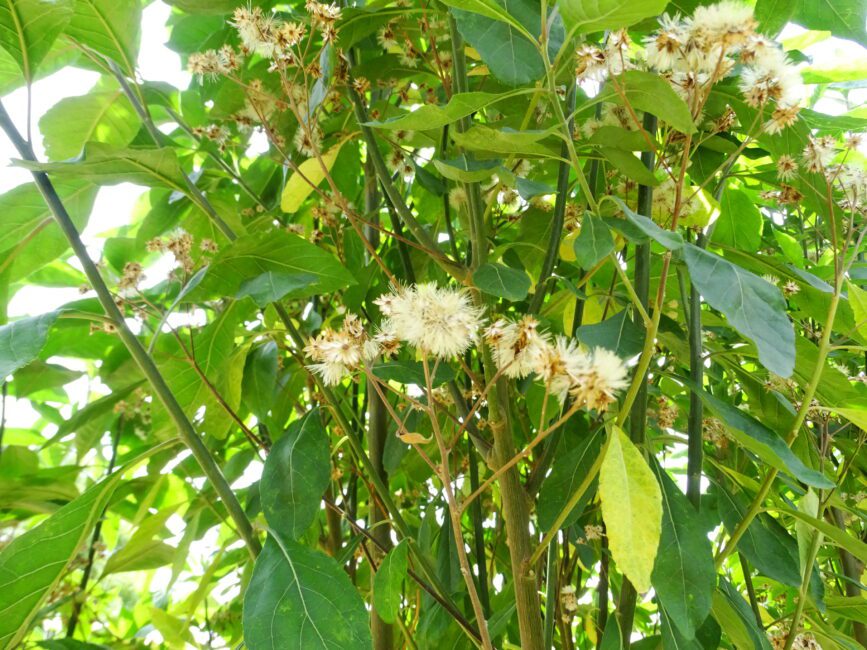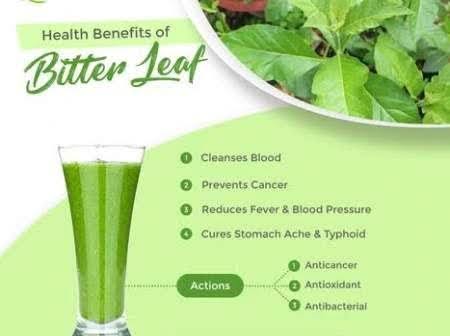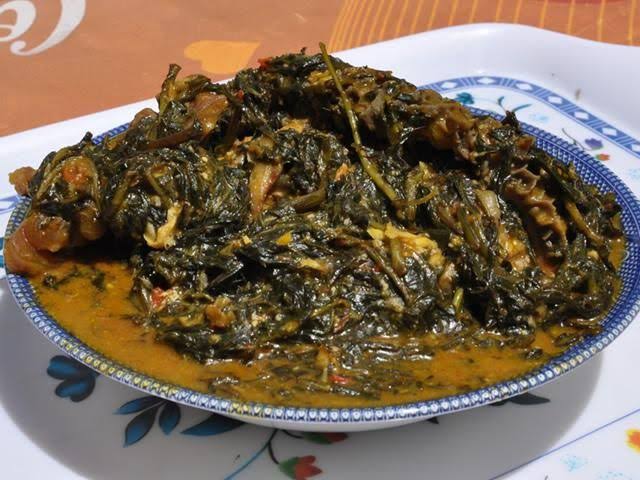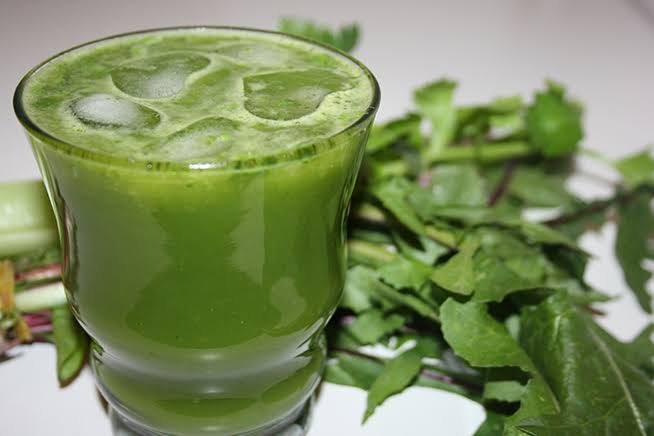Bitter leaves, also known as Vernonia amygdalina, is a plant commonly found in tropical Africa. It is widely used in traditional medicine for its numerous health benefits. Bitter leaves are known for their bitter taste, which is due to the presence of a class of compounds known as sesquiterpene lactones.
In traditional medicine, bitter leaves are used to treat a variety of ailments, including malaria, fever, diarrhea, and respiratory tract infections. They are also used to treat skin conditions such as eczema and psoriasis. Bitter leaves are rich in antioxidants, which help to protect the body from free radicals that can cause cell damage and lead to disease.
Research has shown that bitter leaves have anti-inflammatory properties, which can help to reduce inflammation in the body. They also have antibacterial and antifungal properties, which can help to fight off infections. Bitter leaves have been found to be effective against some strains of bacteria that are resistant to antibiotics.
Bitter leaves are also believed to have anti-cancer properties. Studies have shown that they contain compounds that can inhibit the growth of cancer cells and induce apoptosis, or programmed cell death, in cancer cells.
Bitter leaves can be consumed in various ways, including as a tea, in soups and stews, or as a vegetable. They can also be taken as a dietary supplement in the form of capsules or tablets. However, it is important to note that bitter leaves can have some side effects, particularly if consumed in large amounts. These can include abdominal pain, diarrhea, and vomiting. As with any herbal supplement, it is best to consult with a healthcare professional before using bitter leaves for medicinal purposes.
Read Also: Guide to Proper Methods of Insect Pest Control
Description of Bitter Leaves

Bitter leaves grow on a shrub-like plant that can reach up to 6 feet in height. The leaves are typically harvested when they are young and tender, as they become increasingly bitter as they mature. Bitter leaves are used in a variety of dishes in African cuisine, such as soups, stews, and sauces. They can also be eaten raw in salads or cooked as a side dish.
Bitter leaves are rich in nutrients and contain a variety of vitamins and minerals, including vitamin A, vitamin C, calcium, and iron. They are also a good source of antioxidants, which can help to protect the body against damage from free radicals.
The bitter taste of the leaves is due to the presence of sesquiterpene lactones, which are compounds that have been found to have anti-inflammatory, antibacterial, and antifungal properties.
In addition, bitter leaves are a nutritious and beneficial addition to the diet, but their strong bitter taste may not be to everyone’s liking. They are commonly used in traditional medicine and have been the subject of numerous scientific studies for their potential health benefits.
Health Benefits of Bitter Leaves

Anti-inflammatory properties: Bitter leaves contain compounds that have been shown to have anti-inflammatory properties, which can help to reduce inflammation in the body.
Digestive health: Bitter leaves have been traditionally used to treat digestive problems such as constipation and diarrhea.
Immune system support: Bitter leaves contain vitamins and minerals that can help to support the immune system, which can help to prevent illness and disease.
Anti-cancer properties: Some studies have suggested that bitter leaves may have anti-cancer properties, due to their ability to inhibit the growth of cancer cells and induce apoptosis (programmed cell death) in cancer cells.
Antioxidant properties: Bitter leaves are rich in antioxidants, which can help to protect the body against damage from free radicals.
Skin health: Bitter leaves are used in traditional medicine to treat skin conditions such as eczema and psoriasis.
Liver health: Bitter leaves have been shown to have hepatoprotective effects, which means they can help to protect the liver from damage.
Respiratory health: Bitter leaves have traditionally been used to treat respiratory tract infections such as bronchitis and pneumonia.
Cardiovascular health: Some studies have suggested that bitter leaves may help to reduce the risk of cardiovascular disease, due to their ability to reduce inflammation and oxidative stress.
Anti-bacterial properties: Bitter leaves have been shown to have antibacterial properties, which can help to fight off bacterial infections.
Anti-fungal properties: Bitter leaves have also been shown to have antifungal properties, which can help to treat fungal infections.
Diabetes management: Bitter leaves have been traditionally used to help manage diabetes, due to their ability to lower blood sugar levels.
Anti-parasitic properties: Bitter leaves have been shown to have anti-parasitic properties, which can help to treat parasitic infections.
Pain relief: Bitter leaves have been traditionally used to treat pain, such as headaches and menstrual cramps.
Anti-malarial properties: Bitter leaves have been traditionally used to treat malaria.
Weight management: Bitter leaves have been shown to have weight loss properties, due to their ability to suppress appetite and boost metabolism.
Anti-ulcer properties: Bitter leaves have been shown to have anti-ulcer properties, which can help to treat and prevent stomach ulcers.
Dental health: Bitter leaves have been traditionally used to treat dental problems such as toothache and gum disease.
Bone health: Bitter leaves are a good source of calcium, which can help to support bone health.
Eye health: Bitter leaves are a good source of vitamin A, which is important for maintaining good vision and eye health.
Read Also: All About Black Eyed Susan Flower (Rudbeckia hirta)
Uses of Bitter Leaves

Cooking: Bitter leaves are commonly used in African cuisine, particularly in soups, stews, and sauces. They can also be eaten raw in salads or cooked as a side dish.
Traditional medicine: Bitter leaves have been used in traditional medicine for centuries to treat a wide range of ailments, including digestive problems, respiratory infections, and skin conditions.
Herbal teas: Bitter leaves can be used to make herbal teas, which can be consumed for their potential health benefits.
Skin care: Bitter leaves are used in traditional medicine to treat skin conditions such as eczema and psoriasis.
Liver support: Bitter leaves have been shown to have hepatoprotective effects, which means they can help to protect the liver from damage.
Digestive health: Bitter leaves have been traditionally used to treat digestive problems such as constipation and diarrhea.
Diabetes management: Bitter leaves have been traditionally used to help manage diabetes, due to their ability to lower blood sugar levels.
Respiratory health: Bitter leaves have traditionally been used to treat respiratory tract infections such as bronchitis and pneumonia.
Anti-inflammatory: Bitter leaves contain compounds that have been shown to have anti-inflammatory properties, which can help to reduce inflammation in the body.
Anti-cancer properties: Some studies have suggested that bitter leaves may have anti-cancer properties, due to their ability to inhibit the growth of cancer cells and induce apoptosis (programmed cell death) in cancer cells.
Additionally, bitter leaves are a versatile ingredient with a variety of uses in cooking and traditional medicine. They are rich in nutrients and contain compounds that may offer potential health benefits. However, it is important to note that bitter leaves can be toxic in large amounts, so they should be consumed in moderation.
Nutritional Value of Bitter Leaves

Bitter leaves, or Vernonia amygdalina, are a highly nutritious vegetable that is packed with vitamins, minerals, and other beneficial compounds.
Here is a breakdown of the nutritional value of bitter leaves:

Calories: Bitter leaves are low in calories, with only about 20 calories per 100 grams.
Carbohydrates: Bitter leaves contain about 4 grams of carbohydrates per 100 grams.
Fiber: Bitter leaves are a good source of fiber, with about 3 grams per 100 grams.
Protein: Bitter leaves are a good source of protein, with about 2 grams per 100 grams.
Fat: Bitter leaves are low in fat, with less than 1 gram per 100 grams.
Vitamins: Bitter leaves are rich in vitamins, particularly vitamin A and vitamin C. 100 grams of bitter leaves contains about 364% of the recommended daily intake (RDI) of vitamin A, and about 43% of the RDI of vitamin C.
Minerals: Bitter leaves are also a good source of minerals, particularly calcium, iron, and potassium. 100 grams of bitter leaves contains about 11% of the RDI of calcium, 22% of the RDI of iron, and 12% of the RDI of potassium.
Other beneficial compounds: Bitter leaves contain a variety of other beneficial compounds, including antioxidants, flavonoids, and phenolic acids. These compounds may have potential health benefits, such as reducing inflammation and protecting against disease.
In summary, bitter leaves are a highly nutritious vegetable that can provide a variety of health benefits. They are low in calories, high in fiber and protein, and rich in vitamins and minerals.
Read Also: Stop or Reduce The Intake of These 2 Things If You Don’t Want To Have Kidney Disease
